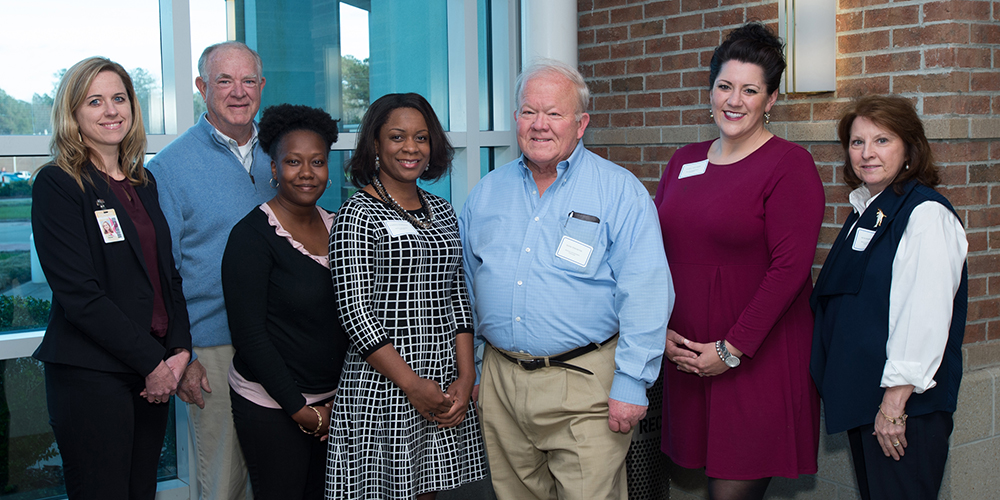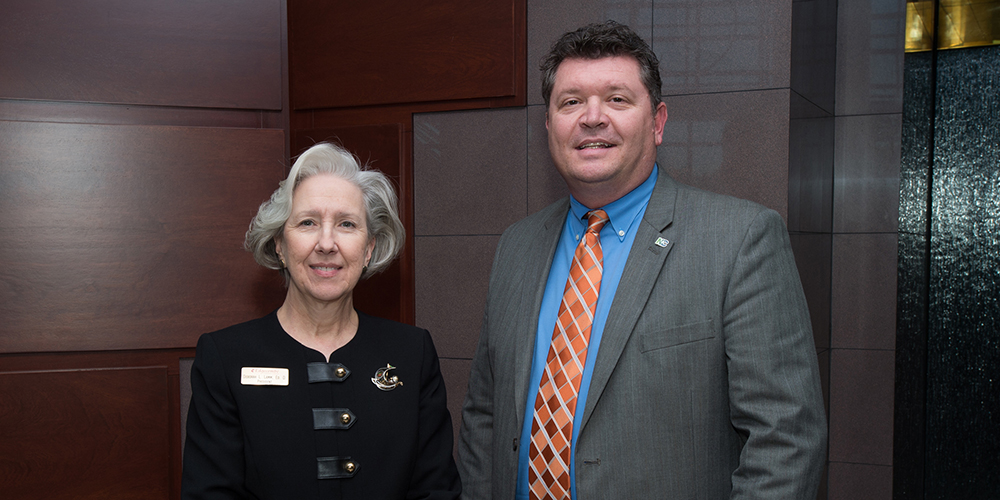College Programs Receive Input from Advisory Boards

Serving on the ECC Small Business Center Advisory Board are (from left) Tina Parker, SBC director; Rusty Holderness, Tarboro business leader; Desiree Dolberry, Rocky Mount Area Chamber of Commerce; Jamilla Hawkins, Edgecombe County Extension Agent, Community Resource Development; Tom Thorne, Thorne Drug Company; Cara Archer, BB&T, Tarboro; and Sue Freeman, Tarboro Edgecombe Chamber of Commerce.
About 200 business, industry, and health care leaders and Edgecombe Community College faculty gathered on the Tarboro campus Tuesday night for Advisory Board Night.
The annual event was held March 14.
ECC advisory boards consist of professional leaders, community members, and faculty who are experts in the subject area of their board. More than 70 businesses and organizations are represented on the boards.
Larry Donley, NCWorks regional operations director for the Northeast Prosperity Zone, provided the keynote address on initiatives and strategies under way to prepare the best workforce.

From left are Dr. Deborah Lamm, president of Edgecombe Community College, and Larry Donley, NCWorks regional operations director, Northeast Prosperity Zone. Donley delivered the keynote address at ECC Advisory Board Night on March 14.
The State of North Carolina is divided into eight Prosperity Zones. Each Zone has a one-stop location to provide citizens and businesses with the ability to interact with multiple state agencies and to encourage collaboration between agencies.
One of the initiatives Donley discussed was the NCWorks Career Pathways, which ensure that students have access to the best education, training, and work-based learning opportunities as they pursue careers in high-demand occupations.
Advisory boards are in place for 28 program areas of the college, such as cosmetology, health occupations, and lifelong learning. Six to 10 members sit on each board.
Stressing the value of guidance and recommendations from advisory board members, Dr. Harry Starnes, vice president of instruction, told the audience, “Our programs need to hear how we can better prepare our students. We need to know how we can help our students be better employees once they graduate.”
